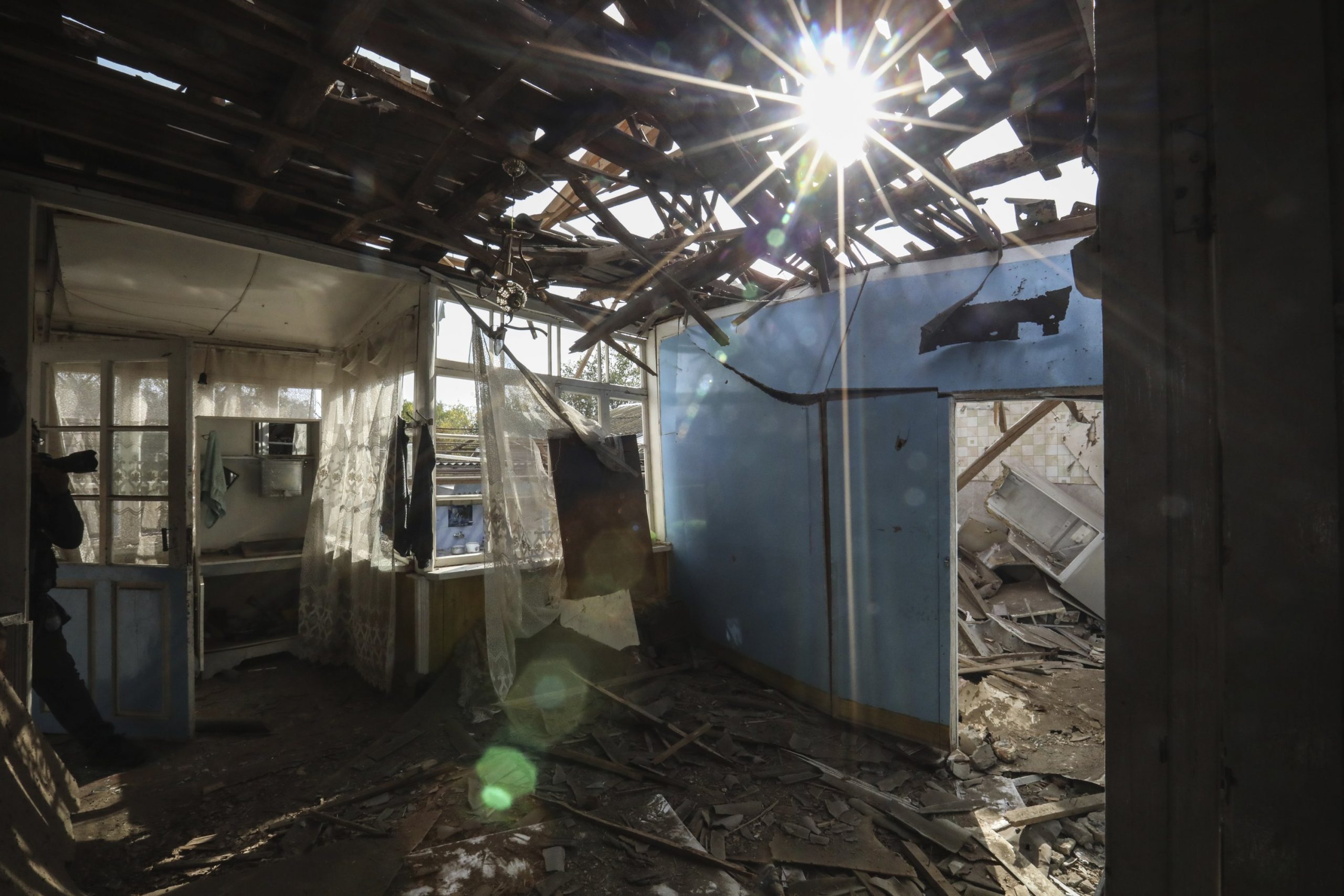Although rival sides in the Nagorno-Karabakh conflict agreed to a fresh humanitarian cease-fire, Armenian forces continued to violate the agreement by opening fire on Azerbaijani soldiers and settlements, Azerbaijan’s Defense Ministry said Tuesday.
The ministry statement said that clashes continue in the Hocavend and Fuzuli border regions as well as in the city of Gubadli.
The Azerbaijani army repelled the attacks, it added, destroying the 18th motorized infantry division of the Armenian army and killing key soldiers.
The Azerbaijani army also destroyed a T-72 tank, four D-30 and three D-20 howitzers, an Osa anti-aircraft missile system, a Grad missile system, a radar station and six vehicles of the Armenian Army and eliminated a large number of military personnel.
A new U.S.-brokered temporary humanitarian cease-fire between Azerbaijan and Armenia was announced Sunday and took effect at 8 a.m. local time (4 a.m GMT) on Monday morning. However, Armenian forces broke the cease-fire only minutes after it was supposed to take effect, Azerbaijani President Ilham Aliyev said Monday, marking the third such deal broken by Armenia in less than a month.
The first cease-fire, reached on Oct. 10, was violated within 24 hours as Armenian missile attacks on the Azerbaijani city of Ganja claimed civilian lives. Another cease-fire on Oct. 17 was also violated by Armenia.
Since fresh clashes erupted on Sept. 27, Armenia has repeatedly attacked Azerbaijani civilians and forces.
To date, at least 65 Azerbaijani civilians have died and 297 others have been injured, while 2,243 houses and 90 multi-apartment residential buildings were destroyed. Additionally, 402 civil facilities were damaged in Armenian attacks, according to Azerbaijani officials.
Relations between the two former Soviet republics have been tense since 1991, when the Armenian military occupied Nagorno-Karabakh, an internationally recognized territory of Azerbaijan, and seven adjacent regions.
Four U.N. Security Council (UNSC) resolutions and two from the U.N. General Assembly (UNGA) as well as international organizations demand the “immediate, complete and unconditional withdrawal of the occupying forces” from the occupied Azerbaijani territory.
In total, about 20% of Azerbaijan’s territory has been under illegal Armenian occupation for nearly three decades.
The Organization for Security and Co-operation in Europe (OSCE) Minsk Group – co-chaired by France, Russia, and the U.S. – was formed in 1992 to find a peaceful solution to the conflict but to no avail. A cease-fire, however, was agreed to in 1994.
World powers including Russia, France and the U.S. have called for a lasting cease-fire. Turkey, meanwhile, has supported Baku’s right to self-defense and demanded the withdrawal of Armenia’s occupying forces.
Most recently, U.S. Secretary of State Mike Pompeo urged the leaders of Azerbaijan and Armenia to abide by the cease-fire that quickly unraveled, the State Department said Tuesday.
In separate phone calls with Armenian Prime Minister Nikol Pashinian and Aliyev, Pompeo “pressed the leaders to abide by their commitments to cease hostilities and pursue a diplomatic solution to the Nagorno-Karabakh conflict,” the U.S. Department of State noted.
Turkey urges Minsk Group for talks
Meanwhile, Turkey late Monday called on the co-chairs of the Minsk Group to start a result-oriented negotiation process aimed at providing a permanent solution to the conflict between Armenia and Azerbaijan in the Nagorno-Karabakh region.
Turkish Foreign Ministry spokesperson Hami Aksoy said in a statement that in order for the Minsk Group’s efforts to yield concrete results, it must take into account Armenia’s recent cease-fire violations, and future talks should be launched in line with UNSC resolutions and international law.
Aksoy noted that Yerevan had violated three cease-fires – one on Oct. 10, another on Oct. 18 and the latest on Monday morning – after the clashes erupted following Armenia’s attack on Azerbaijan.
He said that the latest cease-fire had been declared to allow the exchange of prisoners of war and bodies as a result of the initiatives of the U.S. but was violated again “in minutes” by Armenia as it continued its attacks on Azerbaijani positions on the front line and civilian targets in Azerbaijan’s inner regions far from the conflict zone.
Last Updated on Oct 27, 2020 5:28 pm










Discussion about this post